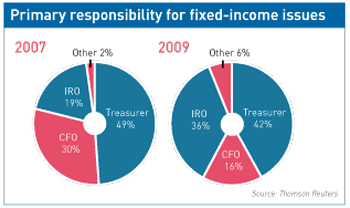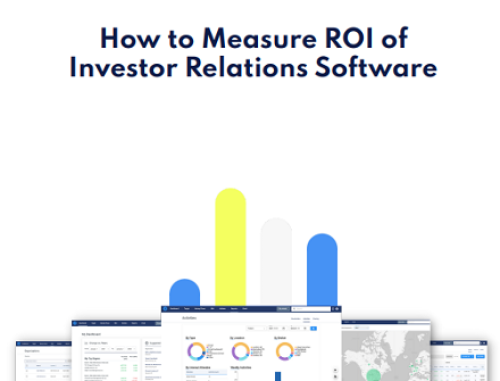Hard copy reports are still popular with investors and companies are holding back on digital changes during the financial crisis.

Cost savings, environmental benefits and even regulation have failed to generate the kind of sea change many expected in the way shareholders receive IR materials. Figures show a significant number of investors still plumping for annual reports in hard copy, despite a concerted effort on the part of governments and listed companies.
Far from heralding the beginning of an e-comms revolution in the UK, the greatly anticipated move toward electronic reporting has turned out to be something of a damp squib. Electronic communication became the default in 2007, leading some firms to see a reduction in the number of hard-copy reports mailed out. But subsequent numbers have remained consistent with investors still choosing to opt in to receive their hard copies.
‘Last year there was a real push, a desire to stand out among some of the larger companies,’ notes Richard Carpenter, managing partner at corporate reporting firm Merchant. ‘In many ways there was a leap forward with a lot of firms moving up a gear and embracing HTML. Then the recession started to bite and that has made people more reluctant to change their approach.’
The take-up – or lack of it – has surprised many who thought the initiative would be welcomed more energetically by investors. ‘Between 2000 and 2006, UK telecoms company BT managed to convert 14 percent of its shareholders to electronic communications by way of incentives, so after the Companies Act I expected the take-up to be higher than it was,’ observes Carpenter.
Further afield
It’s not just the British who have been slow to reap the benefits of new communications formats. The Scandinavians have also been slow off the mark to offer web formats as the move to online reporting is often accompanied by high levels of expenditure.
‘We’ve seen a few instances of firms saying We don’t want to change our processes in the current market, because it’s turbulent and people are not rushing to try out new products,’ comments Johan Ramsten, executive partner at Hallvarsson & Halvarsson. ‘In Sweden only about 40 percent of companies have any type of online annual report.’
Asian firms tend to lead the way in technology but regulators there have been reluctant to throw their full support behind the e-comms lobby, and listed firms cannot simply email a soft-copy PDF file or a web link to shareholders. ‘The majority of Singapore-listed firms still rely on sending hard-copy annual reports because electronic annual reports are not allowed under current legislation,’ explains Sin Yang Fong, director of IR at SingTel. The Singaporean telecoms firm has been one of the region’s market leaders in electronic communications.
Some companies are sending summary annual reports to shareholders and sending a full report only upon shareholders’ request. Others send annual reports in CD-ROMs to shareholders.
‘We are already producing summary annual reports and we’d like to continue to do our part for the environment,’ Sin adds. ‘We also have the largest shareholder base in Singapore so we are in a position to reap the savings from such a move.’
She notes that in order for e-comms to really take off, there will need to be other supporting changes to the collection of shareholders’ data.
‘At present the Central Depository maintains the physical addresses of all shareholders with shares in Singapore’s listed firms,’ Sin explains. ‘It does not, however, compile the same for email addresses. Collating and maintaining stockholders’ email addresses could turn out to be a massive exercise.’
Saving pennies
Many of the much-lauded cost savings are often significant only for firms with large shareholder bases. ‘Most companies have only a few thousand shareholders and, in terms of postage costs, you still have to write to all shareholders to tell them about the default option so you don’t save as much money as you’d think,’ Carpenter notes.
There are online options for companies on a budget, however. While the transition to HTML can be costly, using a hybrid of HTML and PDF files can allow some of the navigational benefits without being cost-prohibitive.
With all the other considerations for IROs, the transition to online reporting seems to have slipped down the to-do list, and Carpenter notes that, despite the popularity of accessing materials on the web, institutional investors often like to have the luxury of accessing both the printed and online version.
‘This is not the year to show off online,’ he points out. ‘In 2009 people are simply doing what they have done previously.’










